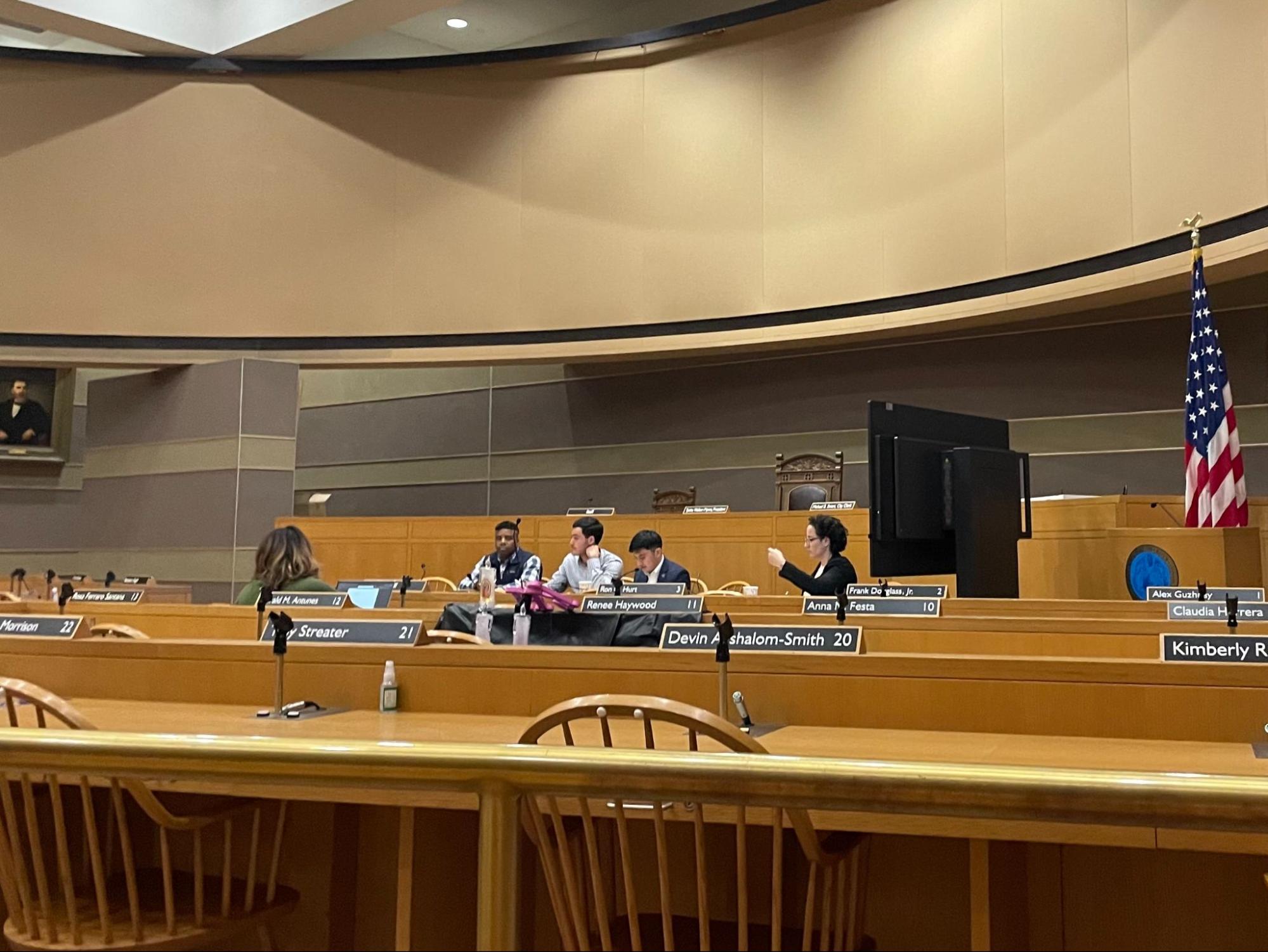Annual homelessness hearing highlights need for more affordable housing and crisis care
Representatives from nine local organizations involved in addressing homelessness testified in front of the Board of Alders’ Health and Human Services Committee.

Ariela Lopez, Contributing Photographer
Concerns over a lack of housing stock and insufficient mental health resources emerged in presentations by community organizations at the Board of Alders’ health and human services committee hearing on Tuesday.
The hearing’s homelessness workshop, which occurs annually, featured testimony by representatives from nine community organizations. The organizations present encompassed an array of services, including shelters, homelessness prevention strategies and crisis support on issues relating to mental health and substance abuse. Velma George, the city’s homelessness coordinator, and Carlos Sosa-Lombardo, the community resilience director, gave an overview of the state of homelessness in New Haven and the city’s current response protocol and then presented the representatives from each organization.
“The goal of this workshop is to hear more about the city, and what sort of strategies and initiatives they’re taking alongside their partners, many of whom are in this chamber tonight,” Ward 1 Alder Alex Guzhñay ’24, who chairs the committee, said.
Housing shortage presents barriers to services
51 percent of households in New Haven are rent-burdened and current eviction rates are higher than pre-pandemic levels, according to Sosa-Lombardo and George. Meanwhile, the rental vacancy rate in the New Haven-Milford metro area is 1.4 percent, a number far lower than the national average of 5.6 percent.
Sosa-Lombardo cited research that cities with lower rental vacancy rates and higher cost burdens tend to have a higher number of unhoused residents.
“It’s very clear that we have an affordable housing crisis,” Sosa-Lombardo said.
He highlighted the city’s plan to allocate $4.8 million of federal funding to increase deeply affordable housing stock. The Board of Alders approved the plan in March.
George said that she had witnessed a “marked drop” in the number of families the Office of Health and Human Services was able to house in the 2023 fiscal year compared to past years. She attributed the statistic to increased barriers to accessing affordable housing.
“One of the key things we’re seeing is landlords that are requesting the income be three times the rent,” George said.
She reported that the department has seen more families look for housing outside of New Haven, in Waterbury or the Naugatuck Valley, where housing is less expensive.
Coordinated Access Network increases collaboration with mental health services
Kelly Fitzgerald, Greater New Haven United Way’s vice president of economic mobility, testified at the hearing about the Greater New Haven Coordinated Access Network, which aims to connect unhoused people from across the region with its partner organizations. Most of the nine organizations at the hearing are partners of CAN.
Fitzgerald reported that in the last 12 months, CAN has helped house over 400 people across the region.
George described CAN as a “doorway” to accessing services offered by other organizations. She said that the city’s Office of Housing and Homelessness works in collaboration with the CAN and statewide agencies to help offer services like temporary housing, warming and overflow centers, navigation hubs and a one-stop pop-up shower.
Mental health and substance abuse management organizations are becoming more prominent in CAN as the city seeks to increase access to crisis care. Claudette Kidd, an advocate with Mothers and Others for Justice and the Room for All Coalition, emphasized the importance of including mental health services in homelessness-focused programs.
“So you’re unhoused. But now you need behavioral health services, you need counseling to help you deal with all that trauma that you’ve gone through and everything, which sometimes isn’t recognized as much,” Kidd said.
Kidd, who was previously homeless, testified alongside organizers from Christian Community Action at the hearing.
Recently, the Department of Community Resilience partnered with Continuum of Care to build a crisis stabilization center to provide rapid access to crisis care. Elm City COMPASS, the city’s non-violent first responder program that George described as the network’s “newest addition,” is also geared toward providing rapid response services related to mental health and substance abuse. Representatives from both organizations testified to the importance of mental health services for unhoused communities.
Department of Community Resilience discusses achievements
According to George, the office received over 1,400 calls for services in the fiscal year 2023 and housed 366 families in motels or shelters. The office’s rental assistance and diversion programs served 194 households, and over 800 case management services were provided across the office’s programs.
The city received over 1400 calls for service at its navigation hubs, which provide basic necessities to unhoused people and can connect them to services. The number represents a 27-percent increase from the previous fiscal year.
The city’s popup shower, which received 347 calls for service in 2022, its first year of operation, received over 1,200 calls for service in 2023.
Looking ahead to the winter, the city and its partners are expanding their warming center and shelter capacity to meet the increased demand. Sosa-Lombardo said that they are looking to add an additional 106 spaces or beds this winter, following the purchase and prospective conversion of the Days Inn into a shelter.
People in need of human services-related assistance can reach CAN through the statewide 2-1-1 hotline.







